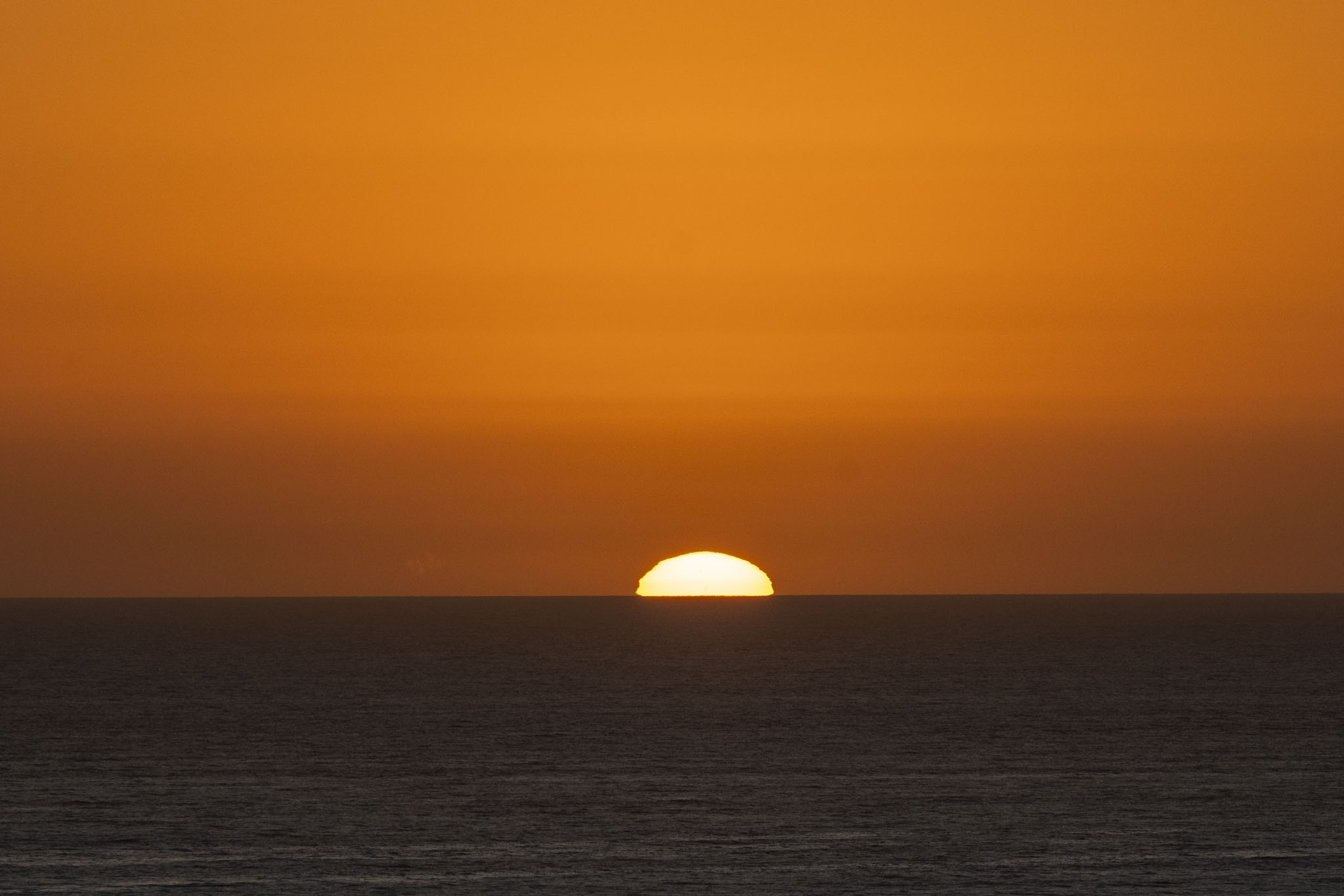
Hello Friends,
We’re not starting out with rain this morning, but the skies are grey enough and the wind is pushing along at 15-20 kts from the south. No rain on the radar at the moment and the Bureau says we should be getting sunny breaks later, but the S to SE wind is set to continue all day. Sadly, it hasn’t pushed up much of anything in the way of waves.
Dee Why looks as though it might be a touch bigger than yesterday, but you’d need to be ultra keen because the sets are struggling to get into the knee to waist high range. Like the wind, it’s out of the SE, but the period is only 6 seconds and the average height at sea is about a metre. It’s pretty much the same up and down the coast from here.
Outlook remains dire. There’s no other way to put it. If the models are right, the east coast will be generally small to flat for much of the next week. Wish it was otherwise kids… but there you have it.
Turning briefly to other matters, apropos the scary stuff going down on the world’s stockmarkets, The Goat sent me the following item. I thought many of you would find it an interesting dose of perspective too…
Australia at war: now that was tough
Written by Steven Schwartz on October 14th, 2008
The stock market s tanking, the world is slipping into recession and banks are falling over like dominoes. Jobs and credit are getting scarce and pensioners are finding their retirement much less comfortable than they had planned.
The media have turned the volume up to screaming point – talking about meltdown and the unravelling of our economic system.
It s getting close to the end of the school year and new graduates are rightfully concerned about their future. Things certainly look bleak and the economic future is uncertain, but it s time to gain a little perspective.
These are tough times, but Australia has been through worse, much worse.
Consider, for example, the world our grandparents faced when they left school.
On a warm November night in 1941, the German navy sank the Australian warship HMAS Sydney off the coast of Western Australia. Six hundred and forty-five crew members lost their lives.
The sinking of the Sydney shocked the nation; it was one of our most modern ships and a vital part of our defence. Until that point, what we now call World War II was being waged far away – in Europe mainly. That spring, the war came to our doorstep.
A mere 18 days after the Sydney was sunk, the Japanese air force bombed the United States naval base at Pearl Harbour in Hawaii inflicting terrible casualties. Three days later, the Japanese invaded the Philippines and little more than two weeks after that, the British, who were meant to provide a bulwark against the invasion of Southeast Asia, were forced to surrender Hong Kong to the Japanese.
In less than five weeks, Australia went from participants in a distant war, secure in the knowledge that British military might in Hong Kong would protect us, to finding a strong and aggressive enemy in the neighbourhood.
But at least there was still Singapore, the mighty fortress that would protect Australia. Well, things did not quite work out that way. The British surrendered Singapore to the Japanese on February 1942 and four days later, the war reached Australia.
The Japanese bombed Darwin with a ferocious force of 260 aircraft. The air raid on Darwin was the largest since Pearl Harbour and it was led by the same commander. Hundreds died (although the government hid this for some time). Broome, Port Hedland, Derby, Townsville and other places were bombed as well.
There were a total of 97 air attacks on Australia, coupled with submarine attacks including Japanese submarines in Sydney Harbour. For the first, and probably, only time in history, Sydney s eastern suburb real estate prices dived while those in the west soared – everyone wanted to live as far away as possible from potential attackers.
The government made plans to defend the bottom half of the country but considered the north too unpopulated to defend against a potential invasion. Luckily for Queenslanders, the plan never had to be tested.
In addition to physical danger, the war took a daily toll on life s quality. Bread, milk, eggs and even clothing were rationed. Today, we complain about how much it costs to fill our SUVs with petrol. In those days, petrol was practically impossible to get at any price. Cities were dark at night.
Messages from Australian forces in Europe, Africa and Asia were few and far between. There were no mobile or satellite phones and no email so families often did not know if their loved ones were dead or alive.
This situation went on for months – fear, privation, loneliness. It was not until the American-led navy battles of the Coral Sea drove the Japanese away that Australia could let out its collective breath. Still, the war had years to go before it was finally over.
Australia grew stronger and wiser from its war experience and went on to build a tolerant, wealthy and free society that has been a magnet for freedom loving immigrants from around the world.
We will emerge from this crisis as well – wiser, stronger and with a bright future.
– Steven Schwartz
And go well with your day!


